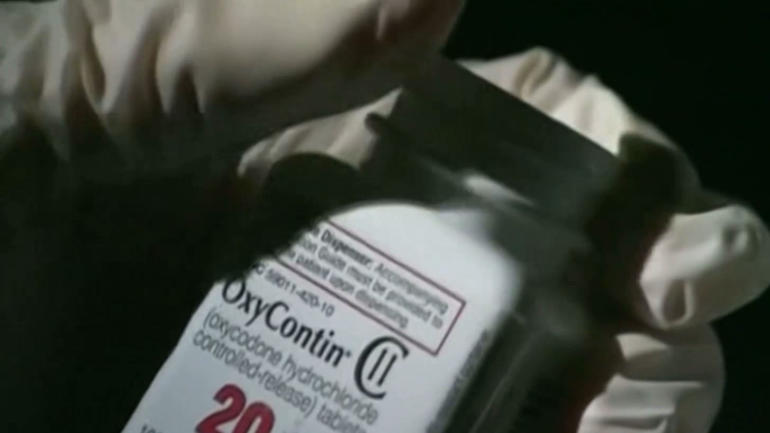The United States has declared its opioid addiction problem a national emergency. Lawmakers are now pursuing several drug companies including Purdue Pharma. They say their practices have fueled the opioid epidemic. CGTN’s Karina Huber reports.
Since the late 1990s, hundreds of thousands of Americans have lost their lives to opioid overdoses. In 2017, the number of deaths was more than 72,000.
“The opioid crisis is an emergency and I’m saying officially it’s a national emergency,” said United States President Donald Trump. “We’re going to spend a lot of time, a lot of effort and a lot of money on the opioid crisis.”
Addiction experts like Andrew Kolodny, the Co-Director of the Opioid Policy Research Collaborative, say Purdue Pharma — which created and marketed the painkiller Oxycontin in 1995 — bears the lion’s share of the blame for the current crisis.
In 2007, Purdue pleaded guilty to federal felony charges, admitting it had intentionally misled the medical community and regulators about its potency and addictiveness.
Today dozens of cities, counties and more than 25 states are suing Purdue and other pharmaceutical giants for their role in the opioid crisis.
Purdue is owned by members of the Sackler family now worth a reported $3 billion largely because of blockbuster sales of Oxycontin. The family itself is now facing legal action for its role in the crisis and they could face more lawsuits.
The Sackler name is well-known in elite circles. Some of the most prestigious arts and academic institutions around the world, including the Metropolitan Museum of Art here in New York have whole wings named after the Sackler family. Another prominent museum bearing the name is the Smithsonian’s Sackler Gallery featuring Asian art in Washington D.C.
The question now is whether that name will become more of a liability than an asset.
Anand Giridharadas, author of “Winners Take All: The Elite Charade of Changing the World” said the Sacklers have actively sought to launder their reputation through philanthropy.
“Their use of philanthropy to burnish a name that might otherwise be associated with shame illustrates a central tactic of our age,” Giridharadas said. “Make money in the billions with a ‘b’ creating social harm and then give money in the million with an “m” to causes they’ll put your name on to obscure the harm that you did and kind of buy you immunity from justice.”
As Purdue is under greater scrutiny in the U.S., it is focused on developing other markets, most notably China, through its subsidiary MundiPharma.
 CGTN America
CGTN America

